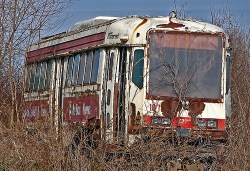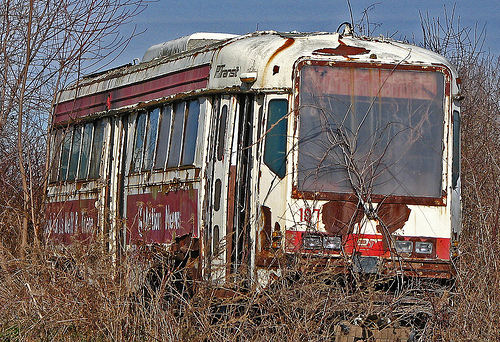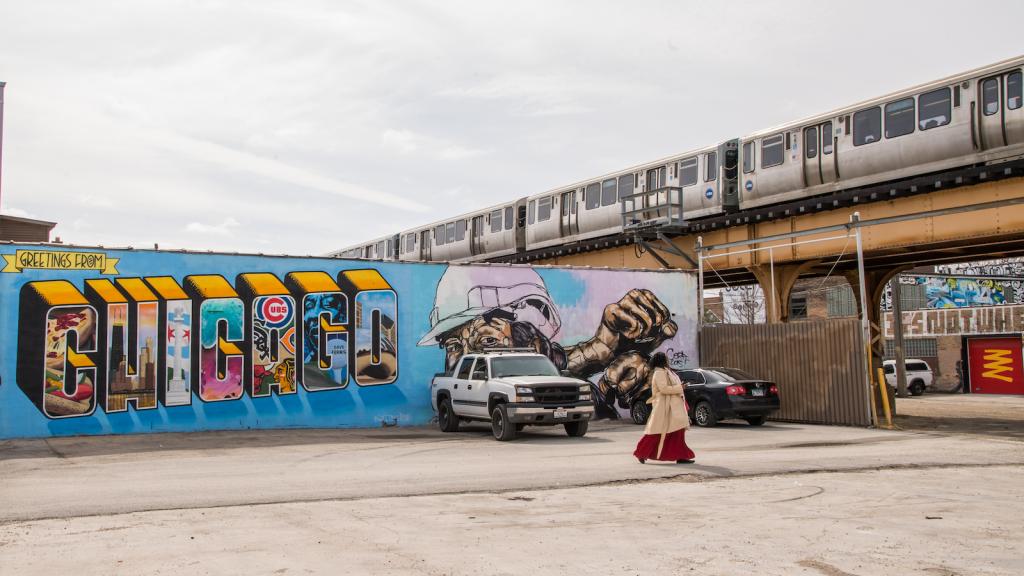
Photo by dok1.
Bill Griffin manages a call center in Pittsburgh. He’d planned on expanding his business, adding 150 jobs. He didn’t.
The Port Authority of Allegheny County plans to cut 46 of its 102 bus lines in September, while raising fares by about 10% to 15%, to help close a $64 million budget gap. The fare increase and historic service cuts have drawn fire not only from angry commuters but also from business groups, which want the state to help out. Republican Gov. Tom Corbett says the transit agency needs to put its fiscal house in order first.
More than half of DialAmerica’s 300 Pittsburgh employees travel to work on a bus line slated for elimination, said Mr. Griffin, a vice president. “When we moved into this complex, the No. 1 consideration was to be near a public-transportation line,” he said.
Public transport plays a central role in local economies, but tight budgets and hefty pension obligations are pressuring transit systems, just as the economic recession and sluggish recovery have depressed the state sales-tax receipts that fund many transit systems around the country.
Without bus lines, even existing employees couldn’t get to work. Expansion, then, was out of the question.
The short-term impact on the often low-income residents dependent on public transit is one thing. But as Slate’s Matt Yglesias notes, the decision will likely have long-term implications:
A lot of the jobs that people have are jobs facilitating other people doing their jobs. A brief spasm of unemployment, even if it’s intense, can be quickly reversed. But the longer the economy operates at a low-tilt, the more the infrastructure of work melts away and the harder it is to recover. Right now it sounds like Pittsburgh could just go back to spending more on bus drivers and bring the service back. But in a few years’ time, some of the buses will have deteriorated to a point of un-usability and it’ll be that much harder to cycle back to a high level of employment.
For a simpler, related take, we’ll defer to the headline of this Guardian editorial: “Austerity has never worked.” Pittsburgh has real cash flow problems that forced its hand on transit. But so many other municipalities and (cough cough) countries are bringing the hammer down on themselves.



